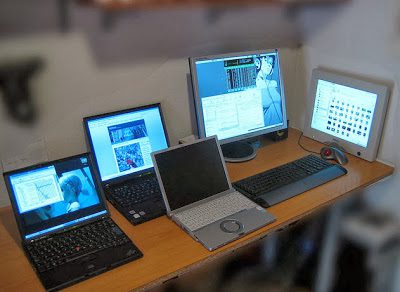Traveling is an occasion for excitement that’s second to none. It’s a time where we escape the day-to-day grind and plan for the future. For the various reasons we travel, business or pleasure, one constant remains with us — our laptops and mobile devices.
While we use our devices for different purposes and with varying frequency, we must all be aware of the dangers that exposed to our devices. Hackers understand our computers are vulnerable while traveling. These Internet ninjas are armed with several strategies to disrupt your travel and damage your device.
This should serve as a short guide of hacker’s tactics and what you need to do to protect your computer.
What’s My Password?
If your password is strong enough, even you should be guessing at times. Password strength is a crucial first step in protecting your computer devices from a hacker’s agenda. One of the most common mistakes is having a password a hacker can easily guess, such as “password1.” Generally speaking, you’ll want to avoid any combination an idiot would put on his luggage.
While some accounts require strength indicators, many do not. Having the same password for every account is dangerous as well. If your password is easily guessed and hacked into, the hacker now has access to all of your information across all of your networks and accounts. If this happens while you’re traveling, this could result in more than a serious headache. Identity theft, after all, can be a life-altering event.
To combat this issue, there a few simple actions to take. Increase your password strength by using lowercase and uppercase combinations, include numbers or symbols, and make sure the word or words are unique to you and not something a stranger would be able to guess. One thing to try: Create 2-4 password options of varying strength and utilize these across your accounts and for different periods of time. This will ensure that you’re always one step ahead, especially when you’re getting ready to travel.
Hot Spots and Security
We’re often forced to adapt while traveling and, in the information age this means finding a connection in foreign spots. The ability to connect with a hot spot identified by your computer can be wonderful for anyone needing to get work done. These hot spots are common while traveling, often found in airports, hotels, or cafés, and they’re a place where hackers keep a close eye on the activity. Wi-fi lurkers are among the top types of identity thieves, after all.
To avoid paranoia and protect yourself, start with a few simple steps. Make sure prior to logging on the hot spot that the name is accurate and verified by the business as the correct working network. When you’re using Wi-Fi connecting to hot spots make sure the networks are encrypted and secure.
To further protect yourself from hacker attacks while traveling, you may want to look into setting up a complete suite of backup, security and support services. Nothing puts damper on your vacation or travels like being hacked and having your identity stolen and it’s easier for people to do than you think. But the question is how can you tell if you have been hacked and what’s ID theft? Becoming knowledgeable about this topic is a great way to better protect yourself.
Limited Activity
The last step to protecting your computer while traveling revolves around your activity. Hackers monitor network activity tracking your Internet whereabouts, so protect yourself by being proactive with your accounts. If you’re logged in across multiple accounts make sure you’re logging out on a consistent basis. Limit the amount of personal file transfers like bank account statements, or minimal work emails; by doing this, your network is less volatile and not as attractive to a hacker looking for the good stuff.
When traveling you should use your computer as normal — just treat it with more care and be cognizant of your every click. In our personal lives we tend to leave our computers or accounts open for ease of access later. But when traveling, understanding how to manage your activity can be the difference in being safe and getting hacked.
Make sure you back up your important data on a flash drive by some other means (cloud, removable hard disc, etc.). Many of us use different devices, moving fluidly between our laptops, tablets and smartphones without much of a thought. Use each one of the devices with a specific purpose on travel, and having each of the files encrypted or on backup is a great defense against hackers. This is hugely important in case anything goes wrong while you’re traveling.
It’s Time to Travel
Now we understand some of the ways hackers try to disrupt our travel plans and how to protect ourselves. Our computers have become more than an option for our travel plans: They’re a necessity. We use the devices for so many different activities, and this at times, may leave them vulnerable to attacks from hackers. Review the steps to keep your computer protected and travel with peace of mind. Have you encountered a problem with hackers while traveling? Share your story below.
| Written on 1/3/2014 by Hailey Robinson. Hailey Robinson is a currently gaining her degree at Ohio State University in communications. She hopes to be a big time journalist one day. |
Photo Credit: Pablo Ruiz Muzquiz
